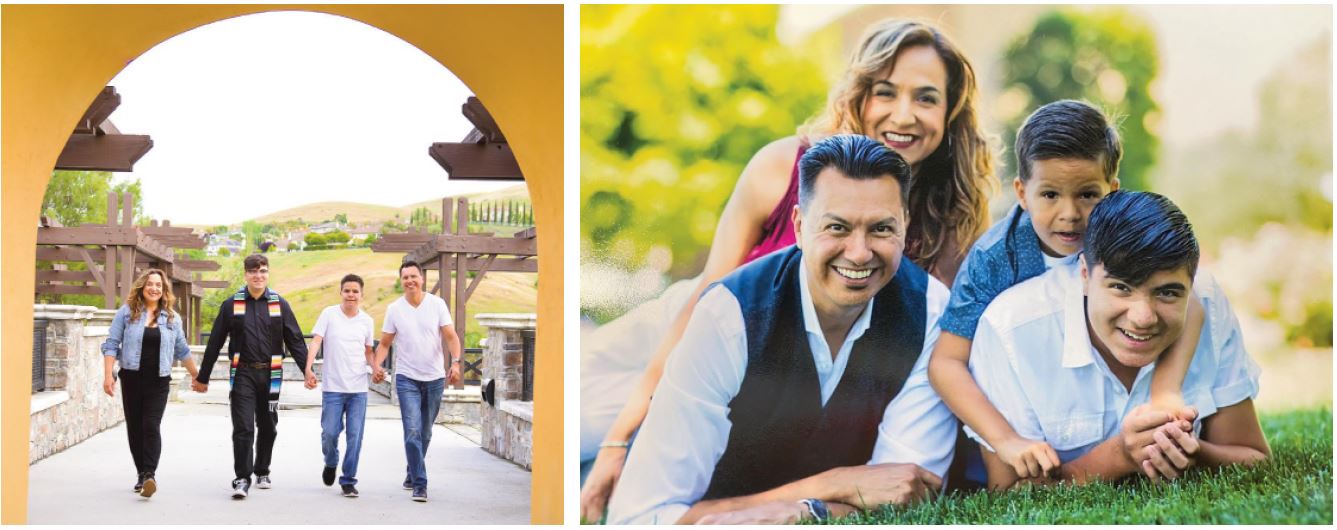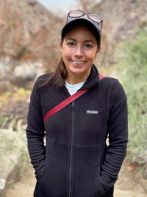
A WAY THROUGH: Susana Ruiz with her husband, Manuel Ruiz and their two sons. "Finding community, finding communication and advocacy is key to reducing some of the challenges parents encounter."
wrestle with strong emotions such as grief, and may even blame themselves for their child's diagnosis. Financial pressures mount if one spouse has to quit work to take care of the child or medical bills aren't covered by insurance. Marriages can become strained. Siblings may act up because the child with disabilities gets so much attention.
HELP IS HERE : RESOURCES FOR PARENTS
PARENT CENTERS
These centers offer support, services and information for families of infants, toddlers, children and youth with disabilities, from birth to age 26. There are nearly 100 Parent Training and Information Centers and Community Parent Resource Centers in the U.S. and territories.
parentcenterhub.org/find-your-center
PARENT TO PARENT USA
A network of organizations across most of the country that can match you with a trained Support Parent who has faced similar challenges raising a child with disabilities or special health care needs.
THE AUTISTIC SELF ADVOCACY NETWORK
The Autistic Self Advocacy Network has information and resources for parents of children with autism, including a guide to autism and therapies.
Other helpful autism-related resources can be found at the Autism Society autismsociety.org and the National Autism Association at nationalautismassociation.org
For many parents, including Ruiz, one of the most powerful ways to handle these stressors and reduce feelings of isolation is to find a support group. After her Bell’s Palsy diagnosis, Ruiz signed up for a research program at Stanford University designed to help parents of children with autism build their resilience. The program included group therapy sessions with other parents who shared the struggles they were going through.
"I understood that what I was experiencing was common," said Ruiz. "Being able to hear other parent's stories and have them share their resources and stories was very inspiring."
Ruiz also began carving out more time for herself to rest, go for walks and do other things she enjoyed. She shared more of the caregiving responsibilities with her husband. She attended yoga classes and learned to meditate. Today she’s a volunteer advocate for other parents of children with disabilities through Parents Helping Parents. Her top advice for parents whose child has a new diagnosis? Find a support group before getting fully absorbed in finding resources for the child. “There are a lot of families that I encounter that are in that chronic stress mode,” she said. “Finding community, finding communication and advocacy is key to reducing some of the challenges parents encounter.” This story was produced in collaboration with the California Health Report www.calhealthreport.org
ABOUT THE AUTHOR:

Claudia Boyd-Barrett is a long-time journalist based in Southern California. Her investigative stories on domestic violence and access to mental health care have resulted in legislative and policy changes, on both the state and county level. Her stories have won dozens of awards and appeared in the Los Angeles Times, the Sacramento Bee and the San Francisco Chronicle, among others. She is a two-time USC Annenberg Center for Health Journalism fellow and a former Inter-American Press Association fellow. She is fluent in Spanish. As a single parent who has experienced financial insecurity, Claudia understands the challenges facing low-income families in California and the role of public health care and other safety-net programs. She is passionate about using journalism to elevate the voices and perspectives of people and communities disproportionately impacted by inequality.